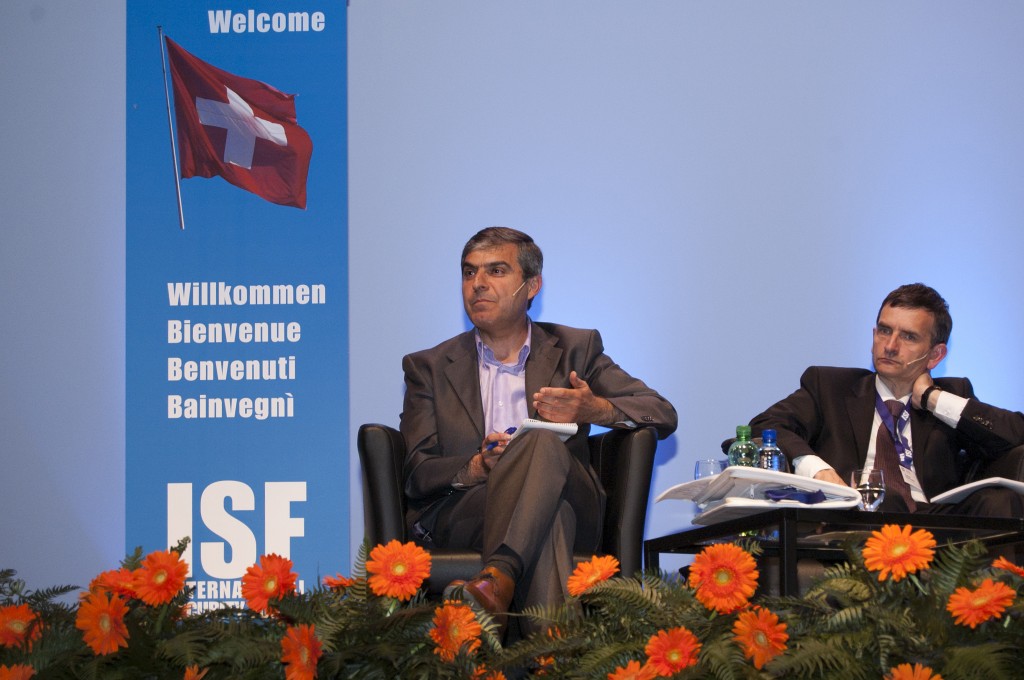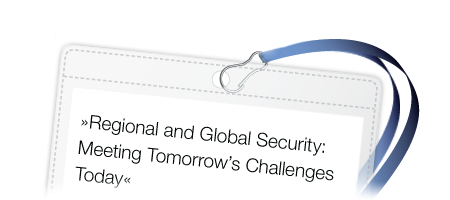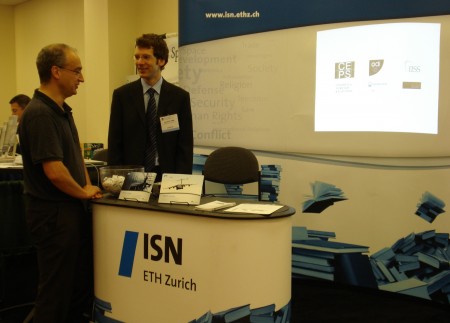
On Wednesday, 1 June, the 9th International Security Forum closed its doors to three days of intense political debate and passionate shoulder rubbing. The highlights were many and varied, yet the 450 participants will surely keep the fondest memories of the event’s first panel discussion, which put the conference on the right track, and set the tone for the following days.
“‘Let’s import a new government’ labor activists joked. This was after the regime threatened to import workers from Bangladesh, if we asked for higher wages”. Nehad Abul Komsan from the Egyptian Center for Women’s Rights (ECWR) described the Egyptian revolution on the opening panel last Monday. Hosni Mubarak is gone but problems remain. According to Yossi Alpher from bitterlemons publications the socio-economic troubles, which are partially responsible for the upheaval in Northern Africa and the Middle East, will continue to pose a big challenge for any new leadership.
John W Limbert from the US Naval Academy examined Iran’s role in the Arab Spring in his statement. As in the past, Iran seems to be excluded from progressive developments taking place in its neighborhood. “Tunisia could, Iran not” is a slogan among Iranian progressives, who are again frustrated by their country’s backwardness. Ambassador Limbert went as far as to say that Iran’s leadership is humiliated by regional developments. It did not even manage to protect its Shiite fellows in Bahrain.




